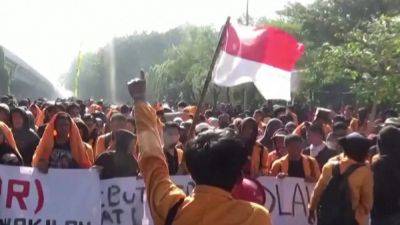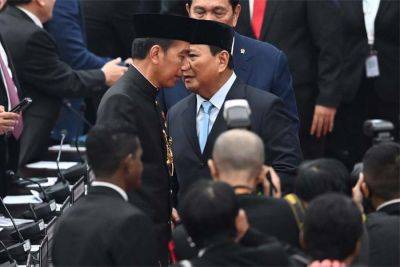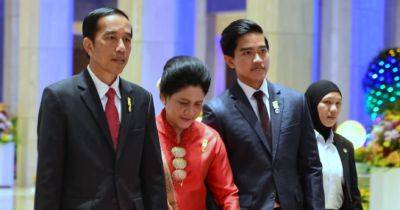Will Indonesia’s democracy and judiciary retreat further after Widodo’s exit?
This has been marked by attacks on – and direct interventions in – the anti-corruption commission and the Constitutional Court. Both were formerly key government watchdog institutions. It has also involved intimidating and weakening the civil society organisations that helped deliver democratisation to Indonesia after the fall of former dictator Suharto in 1998.
Despite this, Widodo’s popularity has remained at over 70 per cent. In recent years, supporters have even proposed constitutional amendments to allow him to run for a third term. While these did not go anywhere, Widodo remains determined to maintain power and influence after he leaves office.
These efforts started earlier this year in the lead-up to Indonesia’s presidential election.
Abandoning the party that had backed his rise to power, the Indonesian Democratic Party of Struggle (PDI-P), Widodo threw his weight behind Prabowo by offering up one of his sons, Gibran Rakabuming Raka, as Prabowo’s vice-presidential candidate.
To achieve this, Widodo had to rely on his brother-in-law, Anwar Usman, who was chief justice of the Constitutional Court. In a blatantly nepotistic decision, a majority of the court helped Gibran bypass the 40-year minimum age limit for vice-presidential candidates.
Usman was removed as chief justice for unethical conduct, but the decision stood. Prabowo and Gibran won in a landslide.
Widodo and Prabowo’s new alliance, the Advance Indonesia Coalition or KIM, soon became known as KIM-Plus as former political opponents quickly moved to secure a place in the new administration.
Widodo also seems to have secured a new political base to replace PDI-P. In what some have likened to a “coup”, Airlangga Hartarto, leader of the second-biggest party, Golkar,







